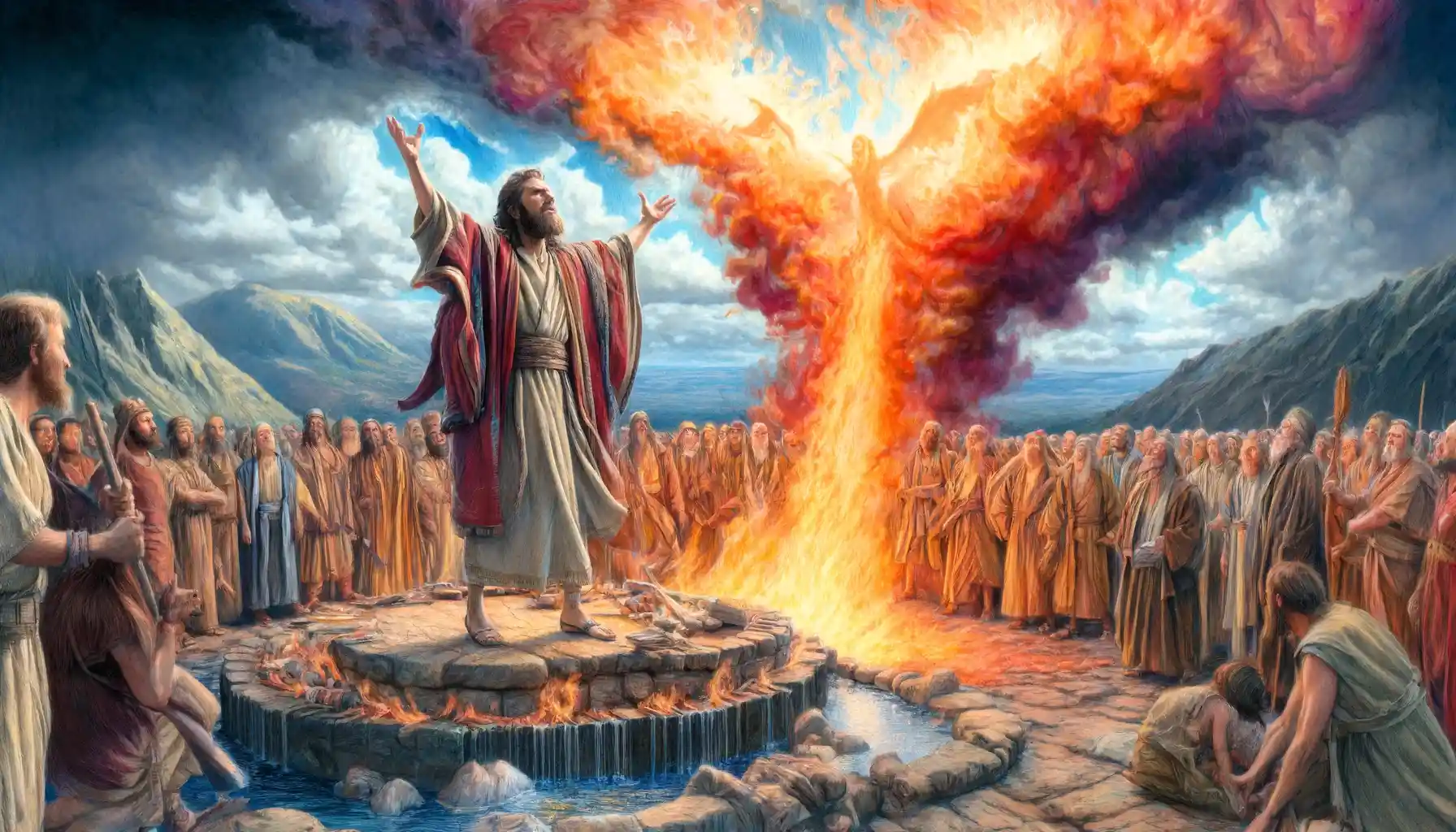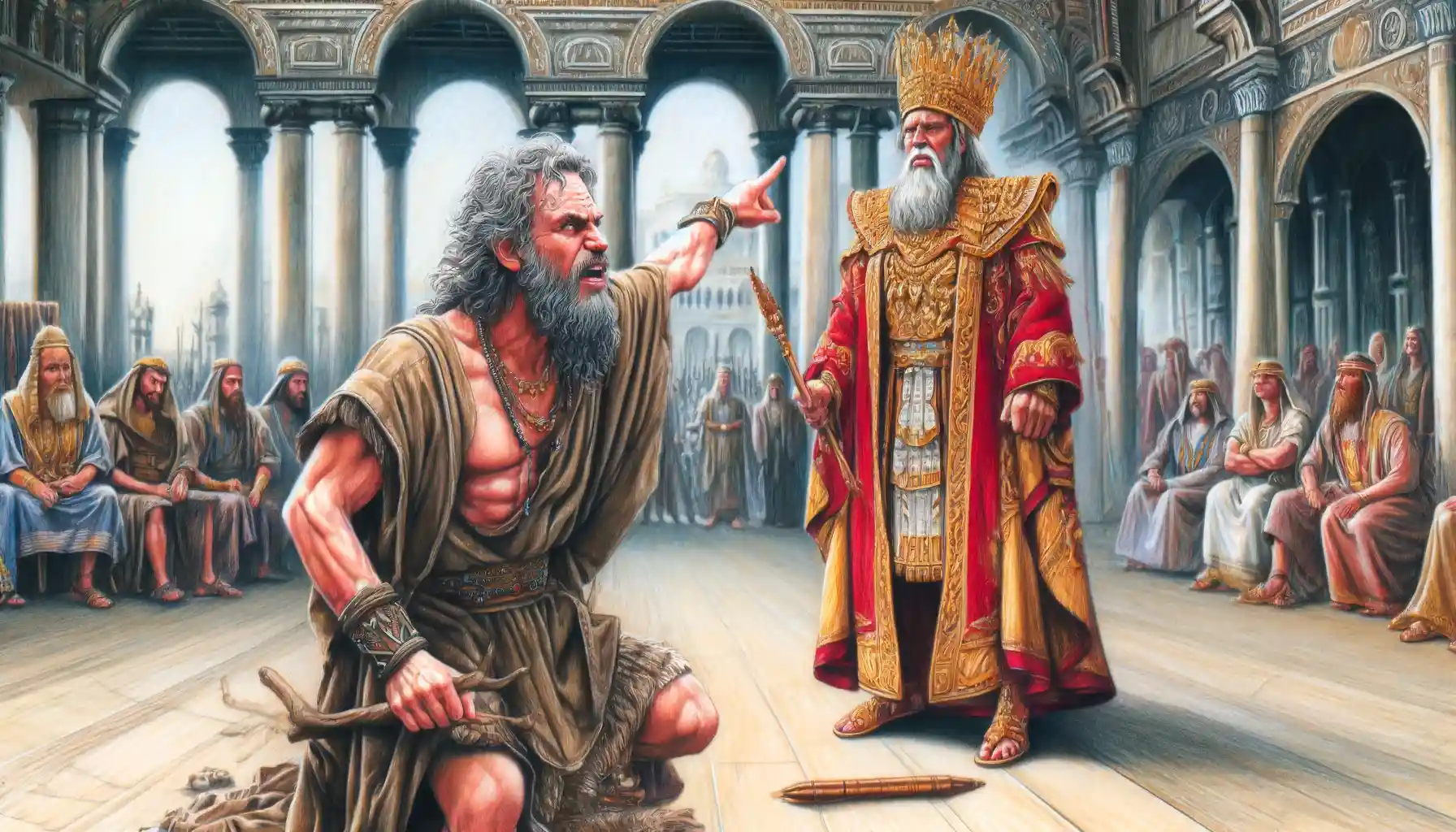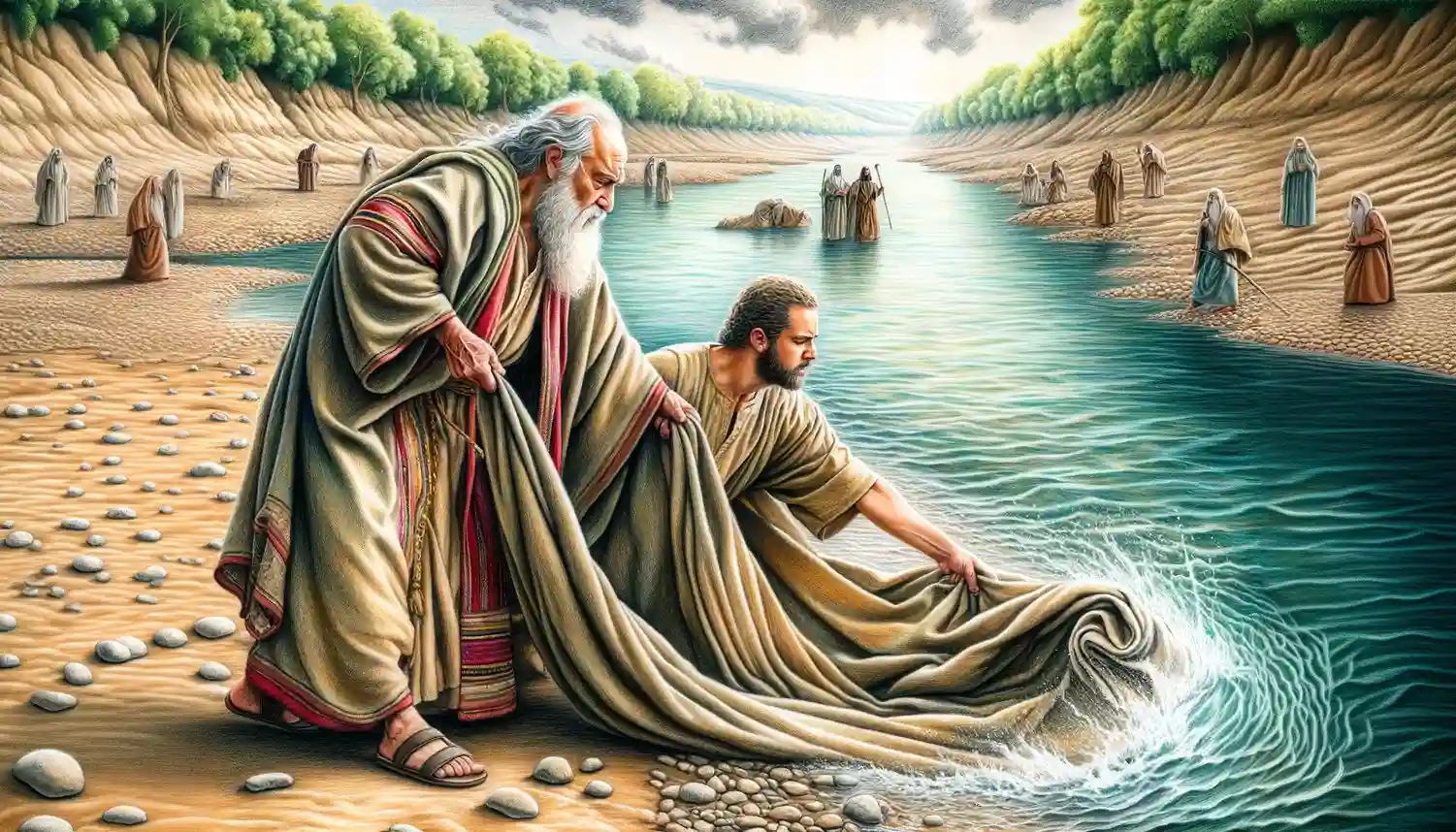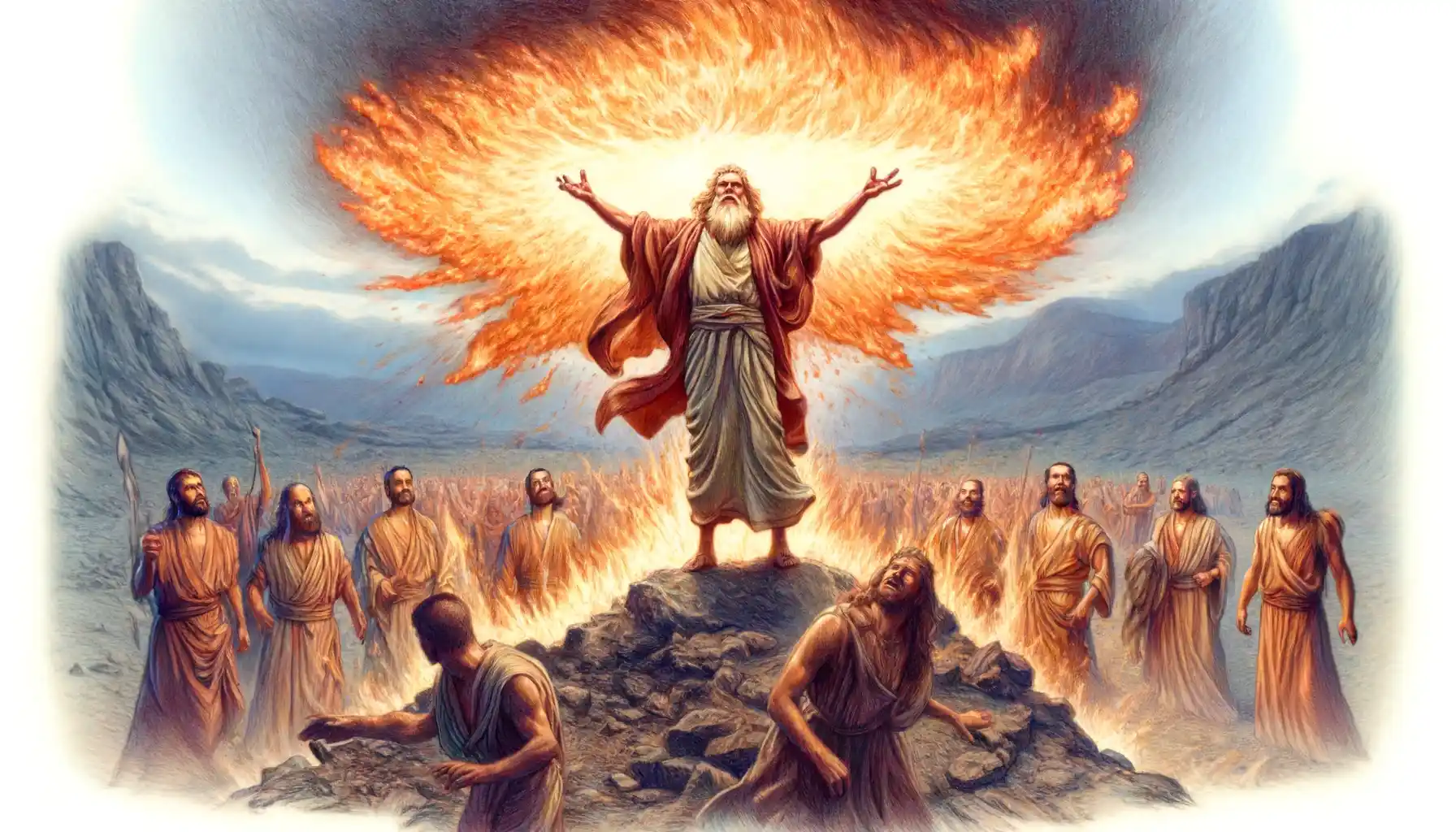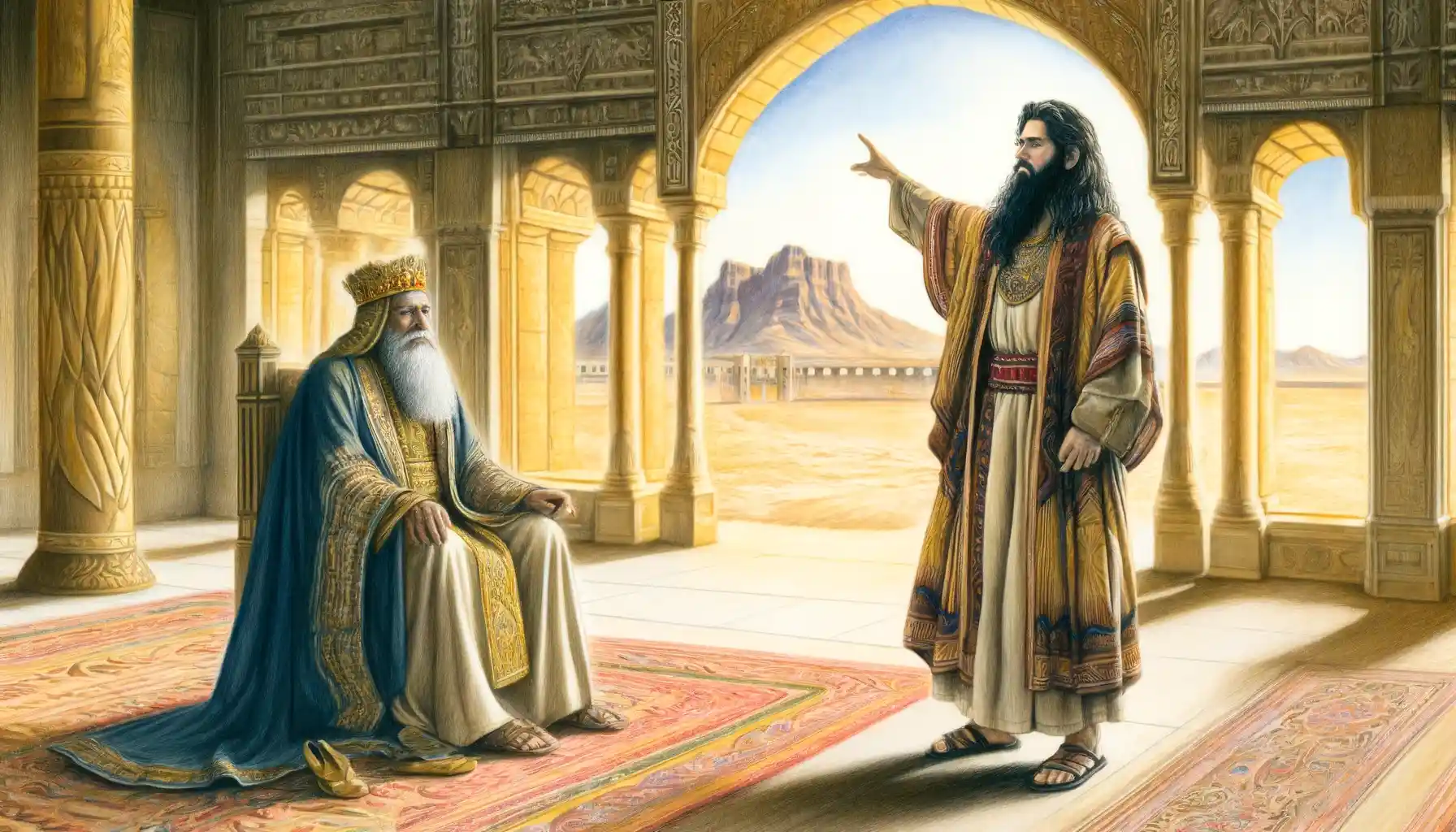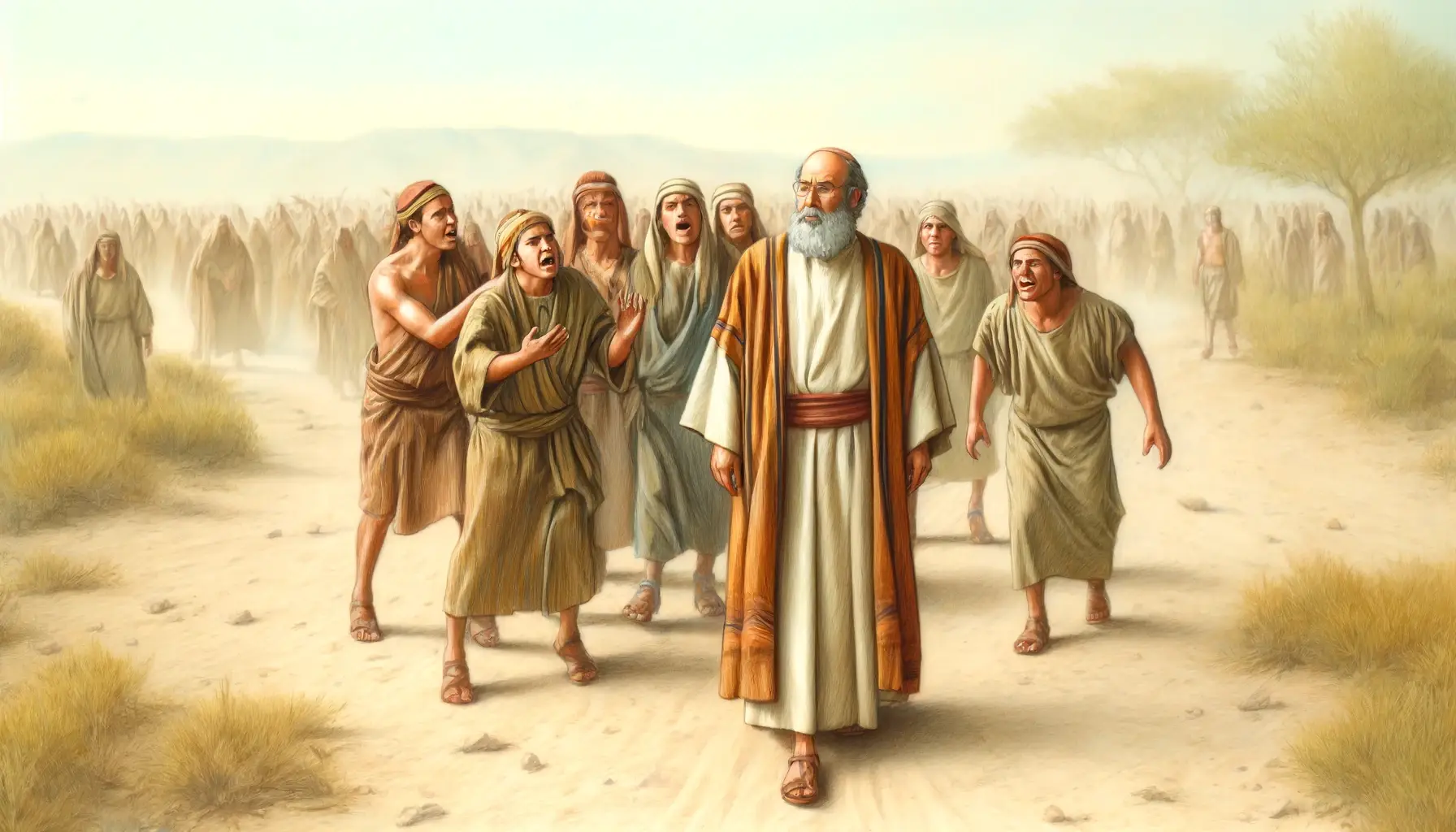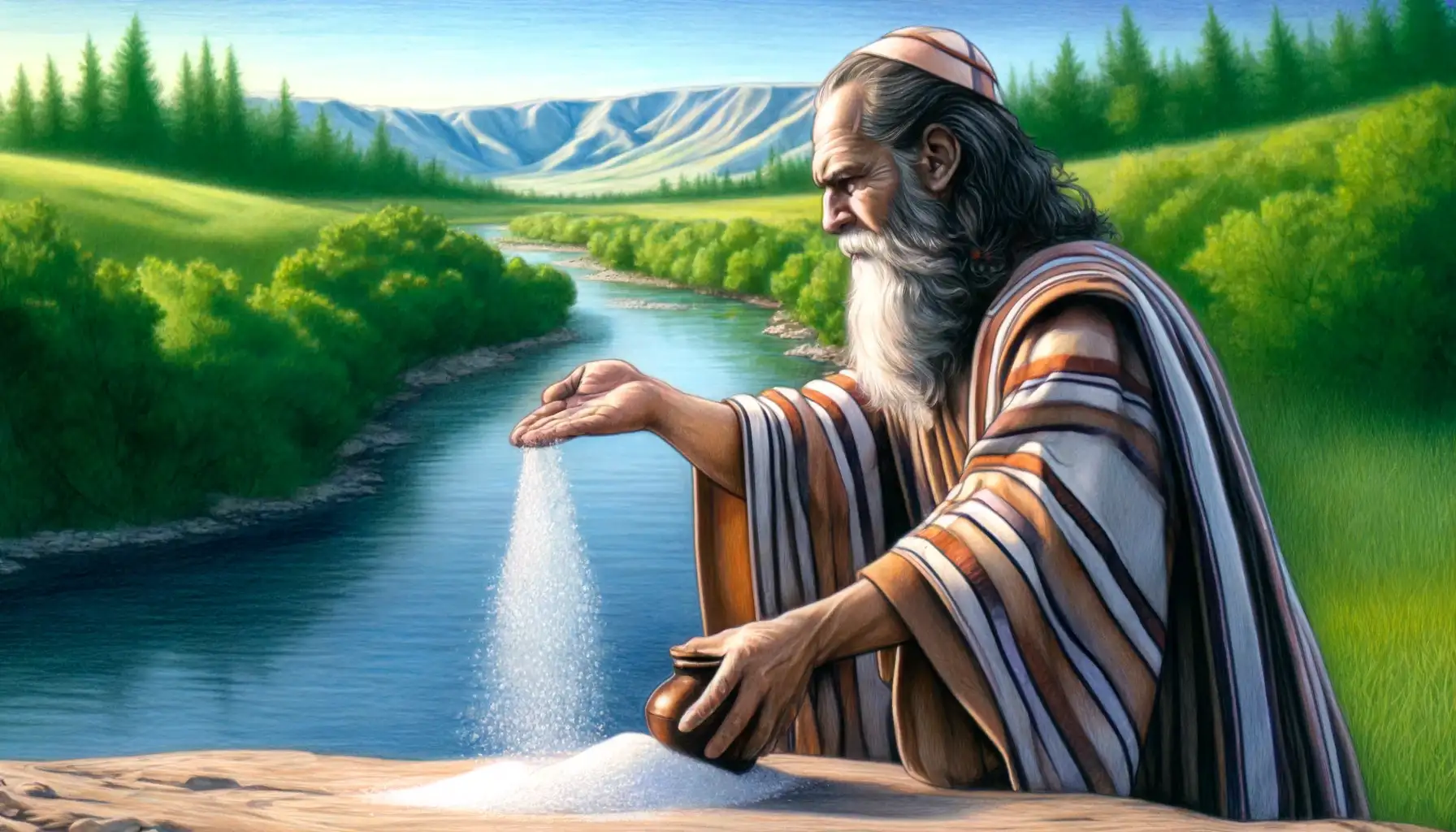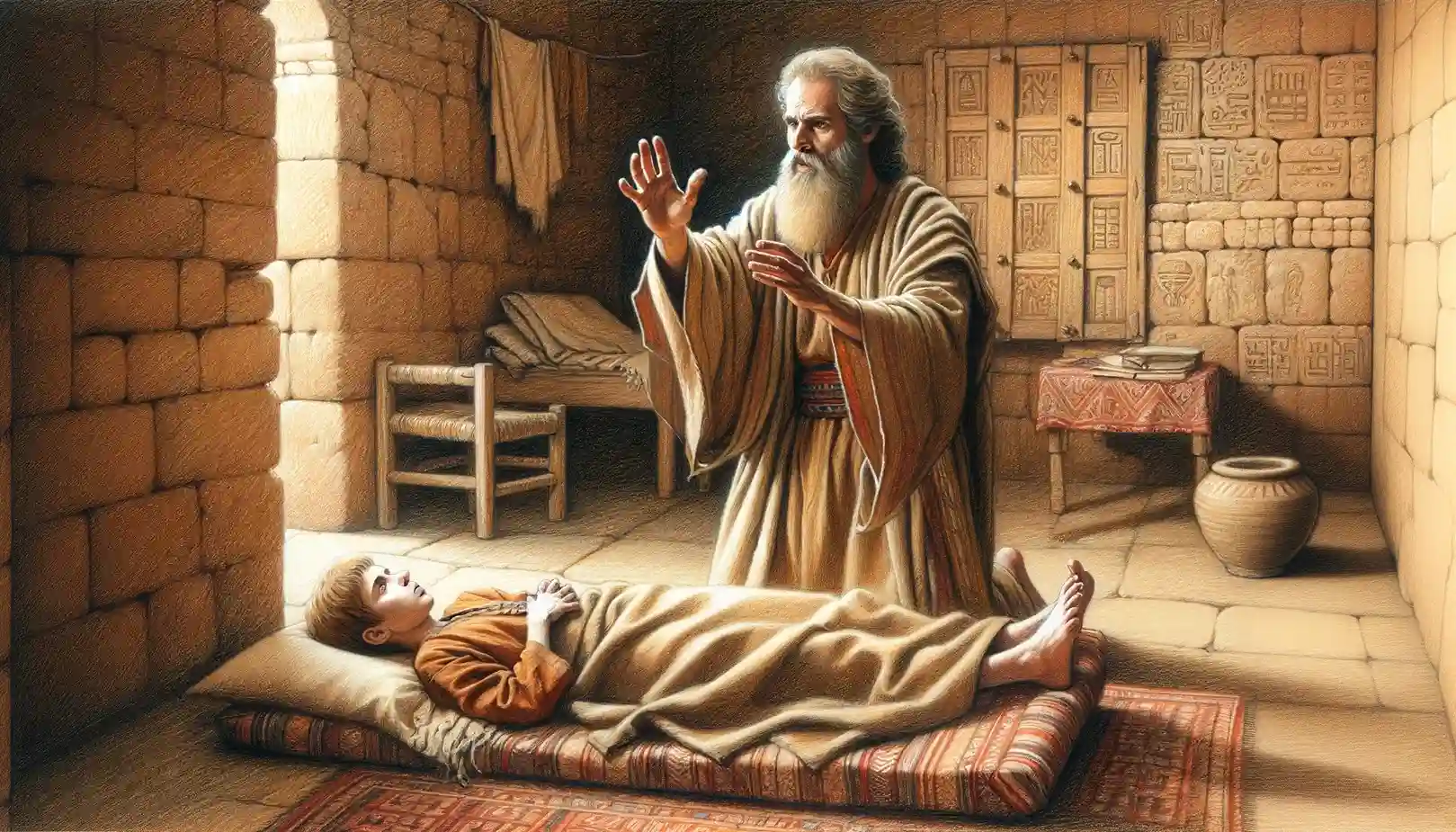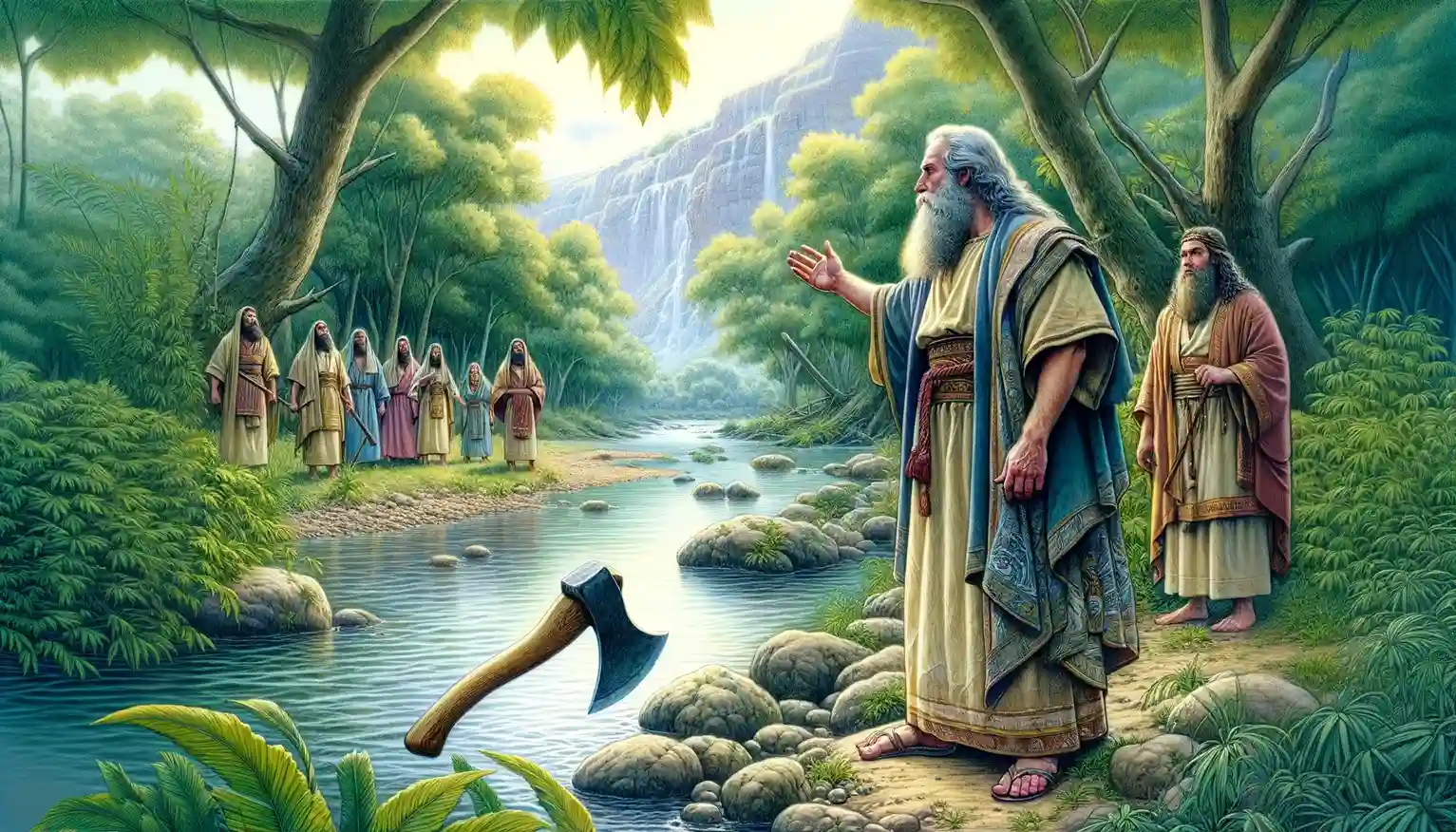The confrontation on Mount Carmel, as depicted in 1 Kings 18:20-40, showcases a dramatic contest orchestrated by the prophet Elijah to demonstrate Yahweh’s supremacy over the Canaanite gods Baal and Asherah, resulting in a divine fire consuming the drenched sacrifice and leading to the mass conversion of Israel back to the worship of Yahweh, reaffirming Elijah’s prophetic authority and God’s unmatched power.
In 1 Kings 17:1, Elijah suddenly appears to challenge King Ahab, announcing a severe drought as divine retribution for Israel’s idolatry, directly confronting the worship of Baal and asserting the supremacy and authority of Yahweh through a bold prophetic declaration.
The Parting of the Jordan River by Elijah, described in 2 Kings 2:8, marks a crucial moment in biblical narrative, where Elijah, using his cloak, miraculously parts the waters, allowing himself and his successor Elisha to cross on dry ground, symbolizing the transition of prophetic authority and demonstrating God’s enduring support for His prophets.
In 2 Kings 1:10-12, the prophet Elijah calls down fire from heaven to consume two groups of fifty soldiers sent by King Ahaziah to apprehend him, dramatically illustrating God’s supreme power and authority, and serving as a divine rebuke against the king’s idolatry and challenge to prophetic authority.
Elijah’s announcement of a multi-year drought in 1 Kings 17:1 serves as a divine judgment against Israel’s idolatry, directly challenging the worship of Baal and asserting Yahweh’s supreme control over the weather and the fertility of the land.
In 2 Kings 2:23-24, the narrative where Elisha curses mocking youths who jeer at his prophetic authority, resulting in two bears mauling 42 of them, starkly illustrates the severe consequences of disrespecting God’s anointed prophets and underscores the sacredness of the prophetic office.
In 2 Kings 2:19-22, Elisha performs a significant miracle by purifying the toxic waters of Jericho using salt in a new bowl, symbolizing divine purification and renewal, which restores the land’s fertility and ensures the well-being of its inhabitants.
In 1 Kings 17:22, the miraculous resurrection of the widow’s son by Elijah not only showcases God’s sovereign power over life and death but also reaffirms Elijah’s prophetic authority and deepens the widow’s faith in the true God.
When a prophet accidentally dropped a borrowed axe head into the Jordan River, Elisha miraculously made the iron float by throwing a stick into the water, allowing the prophet to retrieve it.

